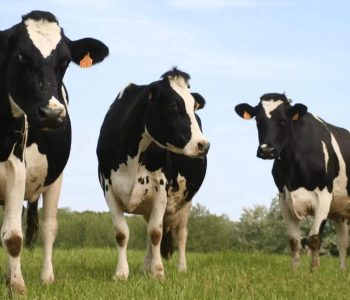In the quest for climate neutrality, addressing cow methane emissions presents a critical challenge, with Denmark pioneering innovative solutions.
Is the target of climate neutrality by 2050 still within reach? As phosphorus and biodiversity thresholds flirt with danger, and with greenhouse gas emissions wavering in uncertainty, decisive action becomes imperative. At the forefront of this challenge lies the reduction of methane emissions from cows—a crucial stride towards fulfilling global emission reduction objectives.
The Global Commitment to Climate Action
Grasping Cow Methane Emissions: A Critical Concern
Constituting a substantial portion of greenhouse gas output, especially in the agricultural sector, methane emissions from cows are a critical concern. In the United States alone, livestock
Unraveling Emission Sources and Understanding Impacts
Effective Reduction Approaches and Denmark’s Pioneering Initiatives
Efficiently curbing cow methane emissions demands a multifaceted approach. Enhancing feed efficiency not only amplifies milk production but also diminishes methane output per unit of feed. Similarly, augmenting Lifetime Daily Yield (LDY) dilutes methane emissions over a broader production volume. Dietary modifications and the integration of feed additives further aid in curbing enteric fermentation. Meanwhile, advancements in manure management, genetic selection, and methane-capturing technologies offer supplementary avenues for mitigation.
In a bold move towards sustainability, Denmark has committed to assisting farmers in funding a feed additive projected to slash methane emissions from cattle by up to 30%. This initiative aligns with the nation’s ambitious climate objectives, which has been recently announced by its government. Denmark, renowned as a significant dairy exporter, is poised to lead the charge as the world’s first country to price agricultural emissions, encompassing methane emissions from belching cows—a groundbreaking measure garnering broad political support.
Toward a Greener Future
In conclusion, addressing cow methane emissions emerges as a pivotal endeavor in the fight against climate change and the pursuit of global emission reduction objectives. By embracing a comprehensive strategy encompassing technological innovations, agricultural practices, and policy interventions, the dairy industry can significantly contribute to mitigating cow methane emissions. Denmark’s pioneering initiatives underscore the importance of proactive measures in combating climate change, offering a beacon of hope for a more sustainable future.
You may also like to read: “Navigating Towards Sustainable Livestock Production”
